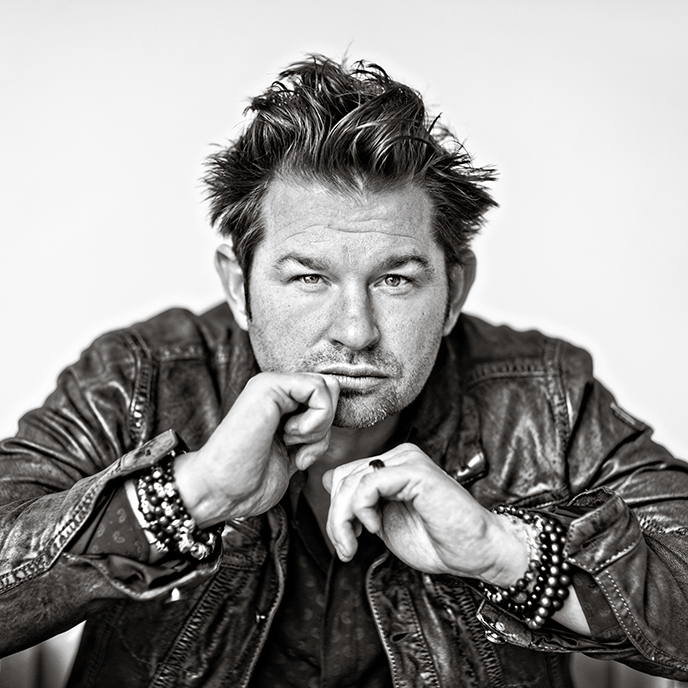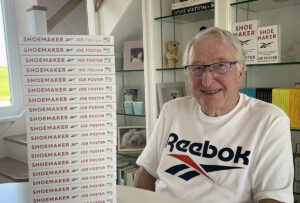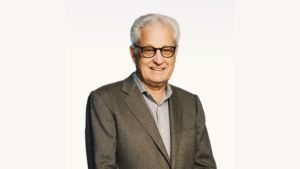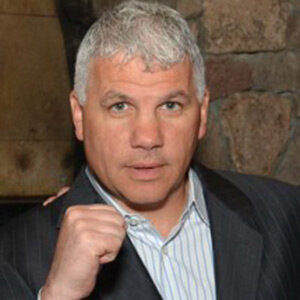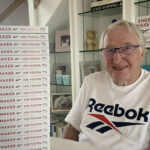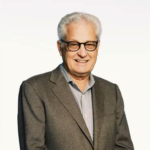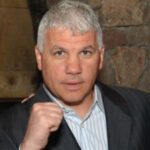View this episode's trailer
Episode Description
His philosophy is simple: Cure the Cause. As the founder of ROOT Wellness, a social sharing community platform addressing the root problems of today’s health issues, Clayton Thomas possesses over 25 years of experience in health and wellness. He focuses on detoxification and supplementation formulas and business ventures with his background in environmental and human health solutions and degrees in humanities with a focus in communications, business and kinesiology.
Host
Dr. Christina Rahm
Guest
Clayton Thomas
TRANSCRIPT
Clayton [00:00:00] Completely unadulterated. Live and intentional. Let’s go.
Dr. Rahm [00:00:16] Hi, there, this is Dr. Christina Rahm, and this is Scientifically Beautiful. Thank you for being on this edition of the show, and today we are going to talk to someone that is a close friend of mine. We are going to interview Clayton Thomas, who is the founder of the company Root Wellness and is someone that I’ve worked together with in various forms of health care and wellness and various companies. So, I’m very excited to have you on today, Clayton.
Clayton [00:00:48] Thanks for having me, Dr. Rahm.
Dr. Rahm [00:00:51] OK, listen, listen. Preston, OK, listen, OK, no Preston was, but on today’s show, I really would like to touch upon just different things about your life, as well as the company and what you do. So, if you don’t mind, because this is on the Life Is Tough network, one of the things I would love to discuss with you is your background, where you came from, what your life was like. And later, we’ll talk about some of the challenges that you’ve gone through that have made you a stronger person because I really believe that we all go through things. None of us are perfect. We develop through time and we learn through many challenges. So, on this network, we’re talking about science and medicine and clinical, and I know you’re going to get into a lot of that, but we’re also going to talk about you so that the viewers can know more about you. So, if you don’t mind…
Clayton [00:01:48] Get personal with the doctor…
Dr. Rahm So, if you don’t mind if you can just give a little bit about yourself and I don’t mind either. We’ll talk a little bit about how we met and how our relationship evolved over time in the area of science and medicine.
Clayton [00:02:04] Well, I think the big part you hit on is that it’s the entire process that we get to go through in our life, so many people get to get to only focus on the positives or and unfortunately there’s a lot of the negative things that happen in people’s lives that can cause, you know, a lot of chaos throughout their life. I think I haven’t done any past life regression therapy, and I haven’t really delved deep into my family issues. But what I, I remember growing up and I would have conversations with my parents about having a dysfunctional family, and my mom would always tell us that that’s not true because in order to be classified as a dysfunctional family, that means someone else is actually functional. But I was honestly really fortunate. I grew up in southwest Washington on the prairie, a small town. You say that you were born and raised in a small town, which is not true. I was on a much smaller town.
Dr. Rahm [00:03:02] I said I was raised in the country and that I was raised basically from grandparents that were farmers. And I think you were raised a little bit different.
Clayton [00:03:11] I got a little bit different upbringing.
Dr. Rahm Yeah.
Clayton [00:03:13] So and I was I was fortunate, really. When you look at your path through life and how your early years can be really formative and I was I mean, I was raised in a veterinary clinic, which was phenomenal because really from the time I was born, when I was in the crib, I was under the counter in the clinic, I was crawling around on the floor with all the dogs, cats and our animals that were in the clinic. I was in the surgery room; I was in the exam room. I was in the waiting room talking to people. Being around animals socialized really, really early and had an opportunity to see a lot of things I don’t think kids ever get access to. But because of having a family that was really integrated in their approach, much like what the journey that we’ve gone through professionally, my upbringing put me in a position to have access to a world that most people never get to see, right? I can remember in starting to study mineral supplementation when I was eight and being in the, um, in the clinic with my mom looking at different slides and looking at blood and looking at fecal samples and then going on farm calls with my dad and…
Dr. Rahm [00:04:23] Well people don’t even realize this and I do, it’s harder to get into veterinarian school than medical school because you have to be so smart and know everything and look into every type of animal and…
Clayton [00:04:34] You have to know multiple organ systems.
Dr. Rahm [00:04:36] Yeah.
Clayton [00:04:36] You, you have to be able to work on the fly. And there’s no communication. You don’t have a dog. Come in and go, you know what? I’m hurting on my side here. I got hit by a car and this or that. Or, you know, I’ve got these indicators. There’s no information in it. It was the one thing I loved with my dad because you could sit in the waiting room and on one day, you know, we’d have a bunch of dogs and cats. And you know, oh, a swan comes in with an arrow through its wing. Or you have, you know, you have every aspect, right? You’re doing triage, you’re doing some maintenance stuff. Every- everything was different. The hard part was because of where my parents started their clinic and when they started the clinic, we got two loans right? Not we. They did, you know, they got a loan so they could actually build the clinic because they built the clinic in the middle of frickin nowhere in southwest Washington. I mean nowhere, everything’s grown up around them, but they got a loan so they could open the clinic. They got another loan, an operating loan so they could feed me.
Dr. Rahm [00:05:34] Yeah.
Clayton [00:05:35] And, you know, watching something that came from ground zero and you know, we had two double wide mobile homes, one that they created the clinic in and one that I grew up in in my early life. You didn’t get to see that later in my life, you think I come from privilege.
Dr. Rahm [00:05:47] That was not the home I saw.
Clayton [00:05:51] But you, you look at that and my dad was on call twenty-four hours a day, seven days a week, 365 days a year.
Dr. Rahm [00:05:57] So that’s where you got your work ethic.
Clayton [00:05:59] And that was… it was a combination of two things, right? It’s the addiction history that my families have, coinciding with the example of service and work and an application of understanding that if you have an addictive personality type, because it was… it was really, I was really fortunate because my mom and my dad both grew up in alcoholic households. Or maybe it wasn’t good, but my mom grew up in an alcoholic Catholic household. My dad grew up in an alcoholic Protestant household. So, I learned really early, even though I got drunk the first time when I was four.
Dr. Rahm [00:06:35] OK.
Clayton [00:06:36] So maybe that was traumatizing.
Dr. Rahm That was an accident.
Clayton I had two margaritas and it was epic. And it was because my mom and dad were chilling on the Saturday early evening, made a couple of margaritas for themselves, got an emergency call because somebody came in and said, hey, my dog’s sick. And so, they had to go down to the clinic, which was basically a walk down the hill and were expecting to be gone for 20 minutes or so. And the four-year-old shouldn’t be much of a problem. He can take care of himself on the floor, but I climbed on the counter, drank two margaritas and licked the rims clean. And that’s why I love salt.
Dr. Rahm [00:07:08] I’m sure four-year old’s can be left alone.
Clayton [00:07:10] Maybe not so much.
Dr. Rahm [00:07:10] Yeah.
Clayton [00:07:13] But. I learned from watching my environment and talking with my parents and watching some of my aunts and uncles being at Christmas time and watching how people behave when they were just blatantly drunk. That that’s not a lifestyle or a behavior that I’m going to follow suit with. And, you know having the conversation, look, our families have addiction issues, so it gets into the psychology, right, of is something actually in your nature or is it nurtured? And you know, how does that affect you? I applied that into work, right? Because that’s where I have a lot of drive. I applied it in sports, and I was diagnosed as ADD, as a kid but my mom refused to medicate me, right? It was probably another great example of good decision making based on being integrative, but she’s like, no, you’re not going to be on drugs, you’re going to be busy. So, I played three sports. When I was active, I got straight A’s. I didn’t have to study much, because…
Dr. Rahm [00:08:16] That’s a great point. I don’t want to interrupt you, but that’s a great point. And you know my background. I was a psychologist and then I went into science. I think that’s something parents don’t understand. But if you can redirect your kids, whether they have addiction issues or whether they have, because addiction issues can actually turn into something good. If you focus on a career or you focus on sports properly, ADD, ADHD, you’ve got to keep people busy.
Clayton [00:08:39] And people think that ADD and ADHD is a crutch. It’s not. It’s that your brain is functioning so fast that society can’t keep up with you, and you need means of entertaining yourself because everyone else is moving too slow. It’s not… at least that’s the way I perceive it. And I can remember growing up and being in class and fidgeting and, you know, not being able to pay attention because class is going too slow. I’d take a test and I’d ace it and I’d be like what’s the problem? But the problem I see in society today, especially with kids, is there’s not enough activity. They have devices in their hands, you know, they have activity that they’re sitting down and being sedentary. But the level of activity and stimulation needs to be physical. They have to move. You got to… it’s like having a puppy. You know, we have the Tilly dog. If I don’t go, take her outside and wear her out.
Dr. Rahm Yeah.
Clayton I know she’s going to terrorize the house and the kids are no different. And we know that the male brain isn’t fully developed until they’re at least twenty-five, me probably 40. And if they’re not active constantly, they’re going to find outlets for activity or behavior, which in most instances are not positive anymore. And so I was, you know, I can say, you know, I have had some experiences that are… they’re made for entertaining stories, but the hardship and, you know, life is tough. I got my ass whipped in sports and, you know, had an opportunity to learn a lot, but you know, it’s about the journey. You don’t really look at trauma. You look at experience and how it forms you.
Dr. Rahm [00:10:17] Well, I think that you took your experience of having ADD and being raised and this is just what I think, being raised in an integrative veterinarian practice where it’s all about wellness right? It’s all about health and making sure the animals are OK. You took that experience and applied it to a world of helping people detox, detoxify things out of their body, which aren’t good, and then also supplement their body with things that are good like your product Zero-In that we worked on and then Restore. From my perspective, I met you I remember, you know, six years ago, and I could tell right away that you were extremely busy, extremely directed. You had a lot to do. Actually, I remember Clayton being in a meeting with you with a marketing group and other groups and you really having this mission. We weren’t working together at the time, and…
Clayton [00:11:13] You were there with me to empower me.
Dr. Rahm [00:11:16] I was there getting to know you and getting to know how we could help people together. And you really provided a pathway which has not been without stress.
Clayton [00:11:26] There’s hardships.
Dr. Rahm [00:11:27] Yeah.
Clayton [00:11:27] And I think that’s the important part as I look at my childhood and go, ah you know, a lot of people look at their childhoods and my childhood was hard, you know, because of where I grew up, what I went through, what I saw, what was done to me. What have you? I didn’t have that. I can, I can really look at three, three to five primary points in life, you know, what you are talking about, that process I’ve gone through in my career and see if we can get into the trauma and the stuff that you know where you say life is tough, you can say, OK, these are formative moments. But when I was 12 and my dad told me I was banned from being a doctor. Was one of the most influential points in my life, because it’s the greatest advice I think my dad gave me, and you didn’t believe he ever said it.
Dr. Rahm [00:12:10] Well I do, when I met, well I didn’t, when I met him, he told me that because he felt like you would not be a good doctor because you are too smart is what he told me.
Clayton [00:12:18] And I’d probably be in jail because I’d be doing things that doctors are not allowed to do with patients and tell them to go do this and do that. And I’m not going to fit into a specific mold. And I think the construct, it was one of the things that I saw with my parents in the clinic, is my dad was formally trained in veterinary medicine back in the 70s and going through medical school, and it’s a process. You get to learn your anatomy, you learn physiology, you learn treatment protocols much, much like, you know, we see in the medical system as it is constructed today. Doctors go in, you follow a process, you’re given a diploma, you follow these specific guidelines.
Dr. Rahm [00:12:56] It’s like working on a car, like here’s your car and the, like, engine broke down and then the mechanic fixes it. And a lot of people don’t understand that but that’s what medical school’s like.
Clayton [00:13:04] That’s how that’s how it’s built. But when you get out and you start to see the practical aspects of your career, you know, specifically what my what my dad saw, you get to learn different things. I can remember when we started getting into mineral supplementation, like when I was eight and then we, my dad started to and my mom because my mom was a veterinary technician and she owned the clinic and ran everything and did a lot of the integrative work. But when they started to look at Chinese medicine and acupuncture and chiropractics and raw food and all these different components that you consider to be integrative that are… it’s the interesting part when we apply that on the human aspect, you go, Oh, that’s alternative. No, that’s actually how life should be.
Dr. Rahm [00:13:52] No, and that’s what… it’s so hard. It’s not just… not every country is like that.
Clayton [00:13:58] No, as you’re saying it’s applying different cultures. If we look at Ayurvedic medicine and from India and such and you go, OK, well, you have, you know, the aspects of heat and cold. And then we look at Chinese Herbology and what they’ve done with Chinese herbs and how to apply those. And one of the coolest comments my dad gave me when he was being trained by the Chinese and the Chinese herbalist on using specific herbal concoctions for different issues, right? If it’s for gastro stuff for your gut or like Yunnan Baiyao, which is this amazing herb that will stop hemorrhaging, you can use it orally if you’re going into surgery or something, and it’ll keep you from bleeding out or from hemorrhaging in surgery, or you can sprinkle it on a bleeder, and it’ll actually help cauterize a wound pretty quickly. And my dad asked the question and he’s like, OK, so why do you use this specific blend of these herbs? And the answer pretty much summed up the whole thing she’s like because my grandfather’s grandfather’s grandfather did it that way.
Dr. Rahm [00:14:58] Yeah.
Clayton [00:14:58] It’s like, because it works. If it didn’t work, they’d change it.
Dr. Rahm Right.
Clayton And so, you get to see. And that was where my understanding and application of science really started to take place, because I was banned from being a doctor. I went to college, I was a sprinter because my Black Irish roots took me as far genetically as I was able to go, which was to the PAC 10. And then I realized I got there and I was pretty white and I wasn’t going to be competitive anymore. But through my studies, I studied business communications, kinesiology, physiology, anatomy, business law, and they gave me a degree in humanities and with a focus in business, communications and kinesiology. And I was like, I’m not done yet. No, you’re done. You can graduate now. I’m like, Yeah, but I’m not finished. Like, Yeah, you are. You can go. And you know, in hindsight, you go, well, maybe I should have gone after advanced degree, but was like, OK, I’m going to go learn. And what, what school gave me the opportunity to do is to learn how I learn and how I wanted to learn. And then through that process, when I got out of school, I always had it in my mind that I was banned from being a doctor. So that was out, but through work experience. So, the first experience was my dad telling me that I was not allowed to become a doctor. The second experience when I was, 16 years ago, when I was introduced to this concept of these amazing little zeolite crystals and such. And I got the tap on the shoulder from God going, Follow that, that’s what you’re supposed to work with. And I went through an interesting journey of successes. And I think, you know, the adoptive process I have now in a business philosophy is fail forward because, as you know, from a scientific standpoint, doing research in molecular design and such, the majority of what we do is not success, right? It’s failure.
Dr. Rahm [00:16:46] It’s failure. And I remember, you know, when I met you, it was through basically Zeolite, not through, I think you were at another company, that I met you through John Salla, who was working with another company who gave me access to, John gave me access to learning about zeolites and silicas. Of course, I had worked on them in the past, but I haven’t focused on them in a while. And then I, of course, changed the formula when we met to…
Clayton To make it better.
Dr. Rahm And I wanted to make a silica. I did not want to kick because I understand how the body is made. And we had all these zeolite companies out there, which I thought they were doing great things, but they were not putting the trace minerals in at the same time, and they were not producing predominantly a silica. So, I didn’t really want a zeolite formula. I wanted to start with that and then make it into a silica so that I could help more people. And because I met so many groups, and again I think you were at another company, but I was exposed to, I think, seven different groups that did different technology. And then I read as much as I could. I did a patent. I’ve since changed that as you know…
Clayton As many things.
Dr. Rahm …and just into something very different. But I think it’s interesting the evolution would not have happened if there hadn’t been multiple failures, if there hadn’t have been issues. You and I wouldn’t have been able to work together and to produce some things that have been able to help people.
Clayton [00:18:00] And that was the third point in my life where I got the tap on the shoulder when I heard your voice and God’s like, that’s who you’re supposed to do it with. Follow her. So, I packed up my clothes, my golf clubs, my Jamieson, and I moved to Nashville, and I got to hang out with the best part of my life. That’s so, that’s really, and in between that you have the failures that you get to go through and it’s only when you get to the points that you pause and you look back that you get to understand that the journey is there for a reason, even if it’s traumatic or if it’s hard or if it’s tough. And things didn’t go the way that you wanted them or the way that you predicted, or the way that you would plan understanding that it’s not your plan. And it’s… you get to look back as you go down your walk in your journey, you then realize it’s like, oh, that’s why, that’s why I went through pain. That’s why I struggled, because you can either appreciate where you are because of where you’ve gone, where you’ve come from, or you’re able to apply it in a manner later on, in something that drives you, something that motivates you, something that allows you to create, or something that allows you to be of influence to others. And I think that’s what’s so, so important and the big part of my journey. And like you said, this is not the first time you and I have done this. We’ve done this before.
Dr. Rahm [00:19:33] I didn’t say that you did. My grandmother actually believes in reincarnation. My grandmother, she’s no longer with us, but we used to when I was a kid, she would talk to us about it and being raised in a Protestant home, of course, that wasn’t really an accepted conversation, but she believed in it. I think some of the Presbyterians believe in, you know, being predestined and stuff like that. And I do think that we are predestined in a way to do certain things that can help people. And one of the things I’ve always respected about you is your ability to take something and to make it into something even better, even if the rest of the world doesn’t understand it or agree with you.
Clayton [00:20:15] It’s very true because you didn’t think much of me when we were introduced initially, but then I turned it into something outstanding.
Dr. Rahm [00:20:24] I didn’t think bad of you. You were different. And I was used to dealing with lawyers and accountants and business people.
Clayton [00:20:32] And men that were sophisticated.
Dr. Rahm [00:20:33] That were pretty polished and always follow the rules. And it was interesting and nice to meet someone that thought out of the box and made people laugh. And then I, honestly Clayton, you’ve taken a passion of learning about animals, applied it to human health care and provided solutions understanding that we are toxic. We have so many things in our body that are… and even you took something I did not want to be involved in launching, as you know, a supplement company. So, I actually, this is, no one knows this, that I said to Clayton, I’m not working in the company, I’m not doing it. You can use some of my formulas and patents that I’ve worked on, but I won’t be involved in the company. So, Clayton launched a company called Root Wellness without my support, without my cooperation, without my…
Clayton [00:21:23] Without your love.
Dr. Rahm [00:21:25] Without my love.
Clayton [00:21:25] Without your blessing.
Dr. Rahm [00:21:26] Without my blessing.
Clayton [00:21:28] The hardest part of my life.
Dr. Rahm [00:21:29] So the reason I was scared because all these companies would threaten, went about it, and stay at their company, they’d sue me, or they would take me to court and make me lose money. Lawyers threatened me. I mean, it was just one thing after another, and I was scared because I had children. You didn’t. And so…
Clayton [00:21:43] That’s not true. I had four and you had four. It’s amazing how that works.
Dr. Rahm [00:21:47] OK. You do now. But at the time, I was scared if you did that, and I think people should know, I think the audience should know. In health and wellness, there’s so much money, there’s so much to lose, there’s so much to gain. There are so many people to help, and there’s so many people that possibly you could hurt that they’re such a litigious world. They’re such a world of power and money where people will try to be a…
Clayton [00:22:12] Male…
Dr. Rahm [00:22:14] Dominated.
Clayton [00:22:14] Narcissistic, sociopathic dominance.
Dr. Rahm [00:22:17] I didn’t say that. But as a female, I was scared. And because I don’t like being threatened, I don’t like wasting money on the legal stuff that I’ve done nothing wrong. I don’t like being attacked, but I think really my fear that people didn’t understand and I don’t know if you ever understood this was the fact that I had four children. So, if I say or do the wrong thing where people don’t like because it can hurt their power or hurt the things they’re doing, they attack me and that hurts my children. And so, for me, it was simply a matter when I say life is tough, you have to make tough decisions. And ultimately, as a mom, it always goes back to the kids. But I just want to say this to you, regardless of my lack of support, regardless of my inability to cooperate and to be involved. You launched a company that’s helping how many countries and how many people at this point?
Clayton [00:23:08] I think we’re in 60 countries and we’ve helped about 13 people.
Dr. Rahm 13 people… a lot. And you did. You did use my formulas and you’re continuing to use parts of things.
Clayton [00:23:19] And it’s the beautiful part of collaboration and partnership that in life there’s always balance, right? Where you have dark, you have light, where you have trauma, you have health, where you have weakness, you have strength and it’s creating that balance. And it’s yin and yang, right? It’s only through that balance and the beautiful part, the part I love, and you know this, is we’re two extremes.
Dr. Rahm [00:23:49] Yeah, we’re very different.
Clayton [00:23:50] You’re, you are the epitome of empathy. And you are the personification of love, right? Because you just exude it. It’s… and it’s one of the things that people see in you, is they see, they see your light and unfortunately, the narcissistic side, the sociopathic side, they want to own it and control it, right? And that’s been a problem. Me? You’re the feather on the hammer, right? So usually they don’t go well together, but when you bring them together, you can find, you find and create balance. And that’s been I think the fun part is for me, the amount of strength that you give me because where I’m weak, you’re strong. And when I feel weak, you give me strength. And in creating Root in what I was developing as far as what I wanted to do, as far as a business model and approach to be able to provide better opportunities for people, whether it’s for their health. But also, you know, on a financial component for changing a construct for how consumerism can be done. When I was weak, the only person, the only thing I would lean on is you. So even though you, you weren’t there per se because you’re like, Go do this on your own. I don’t want to be involved.
Dr. Rahm I just, well, I was scared.
Clayton [00:25:10] I always, I always have that to fall back on. But even when you’re scared, you can come to me and then we get to have the conversation. No, it’s OK. You don’t have to be scared of that. We can handle it.
Dr. Rahm Yeah.
Clayton But it’s having that balance. And I think that’s the one thing that is so important in life of knowing that we’re not meant to do this alone. You can get to… find someone that you can struggle with and through that everything’s manageable. Some of it becomes fun. Some of it becomes entertaining. Some of it becomes the greatest love story ever told.
Dr. Rahm [00:25:48] That’s right, that’s right. But through the process, we’ve both been hurt by people involved in the company. First of all, I’ve been there for you the whole time, just because I wasn’t involved in the company, you know, I love you and I did not…
Clayton [00:26:00] I get to wake up as Donald Trump says, I get to wake up next to a supermodel every morning.
Dr. Rahm [00:26:04] OK. That’s not what we say about me, but anyway. That’s not me, but I am someone that does love and I do care and to tell I was, you know, two years ago for me to accept… and really, a year ago, that people, some people don’t care at all. They just want to hurt you. They’re nice to you because they want something from you. And I think one of the things you and Ted and my kids, my family have brought to my attention more and more, and then I felt and accepted is I simply don’t need to be around those people. You know, I need to be around… And I feel like one of the great things that you’ve created at Root is you’re getting rid of the people that are not on board with the mission to help and serve and love and heal. And you’ve brought in people that that is their mission. I’m going to tell you Clayton, it’s an amazing thing as an outsider almost, to sit and watch you do it, because I’ve seen major changes happen.
Clayton [00:26:55] It’s the application of philosophy, right? Sixteen years ago, when I had this amazing little crystal put in front of me and it changed my perspective of how wellness is actually even constructed in the body. And I hate wellness as a term because it’s so overused and manipulated, so now we just create greatness. But philosophically, it’s just addition by subtraction, right? And you can apply that same thing in people. You can create a lot of great things by removing bad things. Some people don’t need to be in there. And I think one of the things is we have the amazing light bulb. You know that everybody, every single individual, has the ability to light up a room. Yeah, some people do it by walking in. Some people do it by walking out.
Dr. Rahm I like that.
Clayton Not everybody’s meant to bring the light. Some people will bring darkness and they need to be removed. And when they’re removed, your light shines a lot better. So… and when you can identify that someone is there to suck the life out of you and suck the light out of you, they just need to be removed. And you know, you have to accept it. And I think, you know, we’ve argued over this because of the difference in perspectives of growing up in a veterinary practice, you know, and this is where some of the formative aspects for me really came in. I accept death, right? And you have to accept scenarios where death may be the best thing, and the aspects of aging and quality. Understanding quality of life and how important it is, is that in animals, as a pet owner or as one who is required to take care of another life, we identify that in our pets and animals when their quality of life is no longer to the point where it’s acceptable, when you see an animal living in pain or they’re not the bright light that they’re supposed to be. We have to be the ones to make the decision to give them means of getting out of that. We call it euthanasia, which is defined as a good death and putting an animal to sleep and letting them be free of that pain. We don’t do that in humans. But then you have the other side of what happens if a dog contracts rabies, you don’t rehabilitate that animal. Now you put the animal down, and we don’t do that with people, either. And there’s a list of those. But you, you have to…
Dr. Rahm I don’t have that list.
Clayton You don’t have that list. You love everyone. You take rabid dogs in and say, I can, I can pet you, you know?
Dr. Rahm No, I don’t do that.
Clayton Not anymore.
Dr. Rahm No.
Clayton But you have to understand that there are people and animals that you don’t want in your space.
Dr. Rahm [00:29:40] Well, yeah, because I mean, there’s animals that they look nice, you go over and they bite you, right? And there’s human beings that act nice and then they’ll hurt you. And I think one of the things with life being tough and us being focused on health and wellness is you have to determine that and make better choices as you are on this journey. And I just think that that’s one of the things I have seen you do over the past two to three years.
Clayton [00:30:04] Because I’m growing with you. I kind of love you.
Dr. Rahm [00:30:08] Thank you. I love you, too.
Clayton [00:30:11] You said that on camera.
Dr. Rahm [00:30:13] Oh, I’ve told, I say it a lot.
Clayton [00:30:14] Oh, all right.
Dr. Rahm [00:30:17] I just say it differently. I’m a little bit shyer.
Clayton [00:30:20] There’s a secret about you that when someone gets really close to you, you back off in some of the things, and you’re more openly friendly to everyone else, but those that are close to you…
Dr. Rahm [00:30:32] It’s true.
Clayton [00:30:33] They get to see the real Rahm.
Dr. Rahm [00:30:34] Yeah, people don’t know that about me. I… and when I get close to people, I, I pull back a little bit. I’m not sure what… I have to look into that. I’m a psychologist. I’m going to look into that.
Clayton [00:30:46] I have to shrink the shrink.
Dr. Rahm [00:30:47] I think, I think it comes from not wanting to be dependent and not wanting to be too attached so that I, because my fear is I have a lot of people I want to help because there’s so many people hurting in the world. There are so many people with health care and wellness issues that if I completely attach to people that are close to me in my life, then I can’t help the other people. And because I’ve traveled so much, I’ve had to learn, when I left my kids, it was devastating to me. So, I literally had, and I don’t think they noticed, I had huge anxiety. I had anxiety about them crossing the street, anxiety about them sleeping in their own room. So, I wanted them to sleep with me because I was worried someone would hurt them or they’d stop breathing. And this happened when they were in middle school. Like, I was still worried. So, what I had to learn to do is just make myself detach so that I could work because I had to provide for a family. I had to help people. And that’s really where I think it came from. But this interview is not about me. This is about you. But I will tell you, I hate to say this…
Clayton [00:31:44] But if it’s about me, it’s about you.
Dr. Rahm [00:31:45] It’s about us. So, I have to. We have to end it because we do have another call that was pre-scheduled. But I’d like to have you back on the podcast because I think there’s a lot more to talk about. We did not get in to your travels internationally. We did talk a little bit about where you are now, but there’s a lot I would love to discuss with you. So hopefully you’ll invite me on your podcast and I’ll have you back here.
Clayton [00:32:07] Oh, we can come back to the doctor’s office.
Dr. Rahm [00:32:09] That’s right.
Clayton [00:32:10] Oh yes. Round two to come.
Dr. Rahm [00:32:13] All right. Thank you. And this is Scientifically Beautiful. Thank you, Clay, for being on the call. It is a little bit difficult to have a podcast for me to do this time because I am personally very close to Clay.
Clayton [00:32:24] Oh.
Dr. Rahm [00:32:26] And we are together. But I wanted, we are. But I wanted him to be able to share with you his journey and what he’s done and what he will be doing in the future. And we’ll do another episode so you guys can learn even more about Clayton Thomas, and we’ll focus on some of the things that you’ve had to go through to get to where you are even more than this call or this podcast. I’ll see you guys on the next episode. Thank you so much for tuning in. Very thankful for the viewers, and we have a lot more to do on this journey. Thank you so much.

